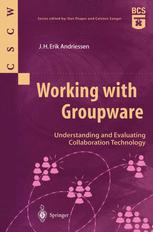

Most ebook files are in PDF format, so you can easily read them using various software such as Foxit Reader or directly on the Google Chrome browser.
Some ebook files are released by publishers in other formats such as .awz, .mobi, .epub, .fb2, etc. You may need to install specific software to read these formats on mobile/PC, such as Calibre.
Please read the tutorial at this link: https://ebookbell.com/faq
We offer FREE conversion to the popular formats you request; however, this may take some time. Therefore, right after payment, please email us, and we will try to provide the service as quickly as possible.
For some exceptional file formats or broken links (if any), please refrain from opening any disputes. Instead, email us first, and we will try to assist within a maximum of 6 hours.
EbookBell Team

5.0
80 reviewsThis publication has grown out of two frustrations. One is the experience that so many applications in the area of information and communication technology (lCT) are built without an eye to what the users can handle or need for their work, systematic user oriented evaluation of new tools is therefore limited. The video recorder provides a good general example of this phenomenon, but more worryingly so do many software tools designed for use in organisations. The other frustration arises from the fact that the people and the theories that can be used to provide this much needed user orientation are scattered over many disciplines and communities. There is considerable knowledge available about task performance, human communication and group interaction and the way in which new ICT -tools can be used to support these processes, but scientists do not know each other, the studies, theories, journals and conferences are produced by different communities in isolation and little cross fertilisation takes place. In this book I have tried to bring together knowledge from various disciplines, as the basis for constructing a design oriented evaluation approach that hopefully contributes to providing a user orientation for new (technical) systems.